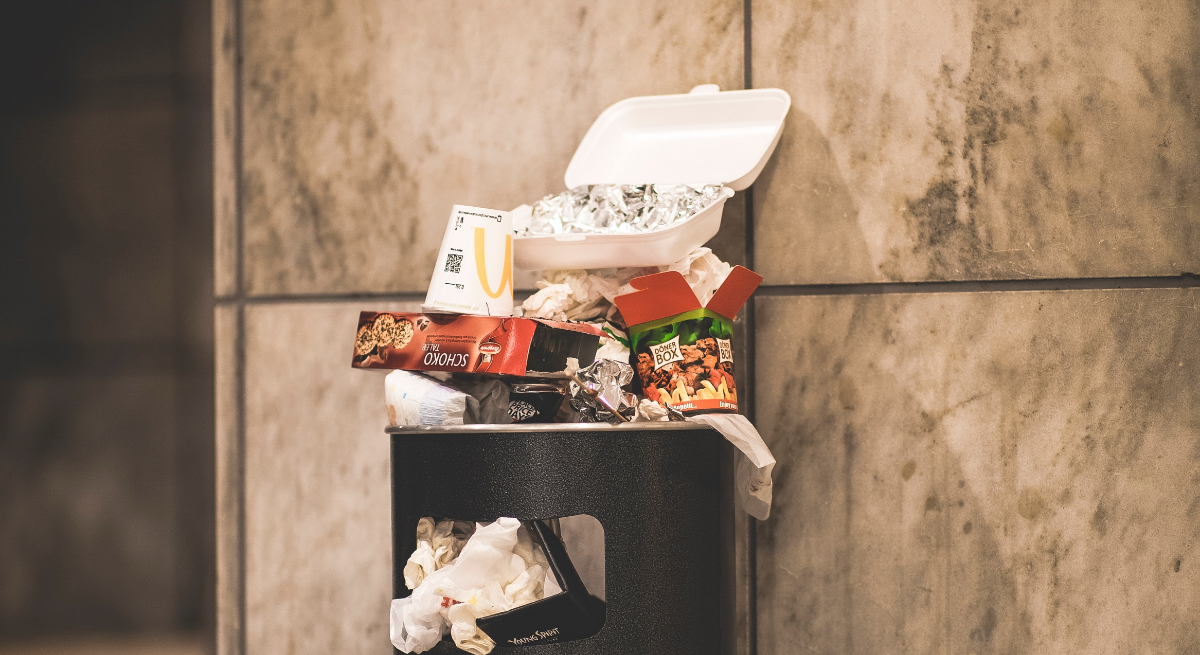An Environmentally Friendly Strategy to Reduce Restaurant Costs
3 Min Read By Oshik Efrati
Food waste generated by restaurants has long been an expensive and environmentally harmful problem. Now, there are solutions to change this that actually turn the waste into a resource that doesn't just benefit the environment, but the restaurants themselves. There is no longer an answer as to what's stopping these restaurants from adopting organic waste management solutions. Now the question is, what are these solutions and how can restaurants finally put them into practice?
Currently, the restaurant industry is generating a lot of waste, with each restaurant averaging at between 25,000 to 75,000 pounds of waste production per year. Tremendous amounts of food are being thrown away, accumulating to an astronomical amount of polluting waste, which mostly remains untreated and creates colossal environmental damage. Food production and consumption currently constitute over 30 percent of international greenhouse gas emissions, and the world food system’s ecological footprint is expected to greatly expand in the next few decades following an increase in world population, which is expected to reach 10 billion by 2050.
The problem is only getting worse, yet, simultaneously, there has been a rise in environmental awareness, which encourages the food industry to adopt green practices in order to reduce the scale of pollution. The Food Waste Reduction Alliance stated in a report that only 14.3 percent of the leftover food is recycled, 1.4 percent donated, and the rest, 84.3 percent, is discarded.
Landfills are the most common resting spot for organic waste generated by restaurants. When organic waste decomposes in landfills, it naturally produces a gas called Methane. A greenhouse gas with 80 times more warming power than CO2. In an era of rapid urbanization and population growth, waste management is critical for sustainable, healthy, and inclusive cities. If no action is taken, the world will be on a dangerous path to more waste and overwhelming pollution. The time to act is now.
So what can we do with all this food waste?
Restaurant waste treatment now offers various innovative solutions, which every restaurant can adopt without too much effort. These green solutions not only help the environment, but also the restaurant itself – in reducing resources, in smart purchases of raw materials, and in adopting more efficient work practices. These are also all translated into financial savings – and that in itself is a strong incentive for restaurant owners who haven’t yet gained environmental awareness.
Educating the restaurant industry about the circular economy should be a kicking off point for implementing these solutions. The circular economy is a model of production and consumption involving the reuse or recycling of materials to its fullest life cycle. In regards to food waste, the process of elongating its life cycle typically consists of processing food waste to create energy, and in some forms even fertilizers. One of the goals of the circular economy is to reduce waste to its minimum.
To encourage the use of green solutions, ESG (environmental, social and governance) goals should be implemented in restaurants. Taking action to make changes to achieve these goals would create a pivotal change for the restaurant industry. A move in this direction would include changing the way restaurants handle food waste, and now with deliveries becoming more common, plastic waste as well.
Imagine that instead of it being thrown away and generating pollution, every restaurant could transform its food waste into green energy and then use it. This is completely possible when implementing anaerobic digestion methods, a process through which bacteria break down organic matter in the absence of oxygen. The process produces biogas, a clean energy. Utilizing anaerobic digestion, restaurants can take their food waste and generate energy, which not only lowers the damage to the environment, but also saves them money on energy bills.
In California, new legislation has facilitated mandatory organic waste collection to residents and businesses. According to CalRecycle, “businesses are required to subscribe to and participate in their jurisdiction’s organics curbside collection service OR self-haul organic waste to a specified composting facility, community composting program, or other collection activity or program.” Businesses in California are also mandated to have organic waste collection bins for patrons of their businesses, as well as clearly indicated bins with colors or labels for internal waste collection. Businesses that generate organic waste also have to provide annual education to employees, contractors, tenants, and customers as to how to properly distribute their waste into the proper bins as well as provide an adequate number, size, and location of containers for employees, tenants, contractors and customers at access.
Even these mandates in California, aren’t perfect as collection aspects also aren’t as environmentally friendly.
In conclusion, the response from restaurants has been lackadaisical and if efforts aren’t implemented as an urgent response it is at the expense of not only business owners wallets, but the environment. Organic waste must be utilized for the greater good, so why are restaurant owners still choosing to avoid this indisputable win-win situation?


